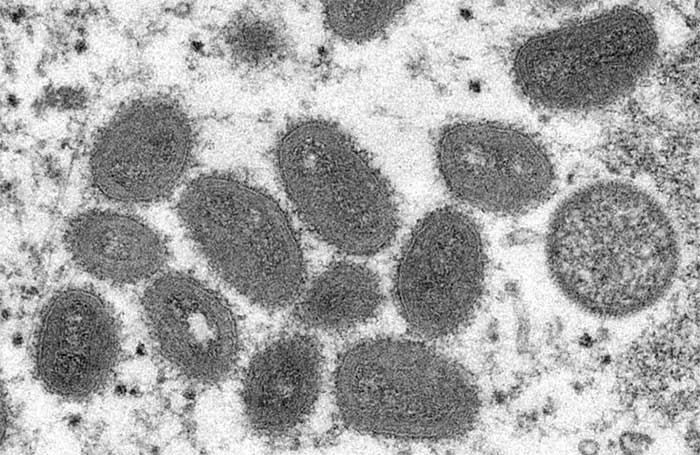In order to prevent the risk of an outbreak of disease within the country, German health officials will implement a quarantine of at least 21 days for individuals infected with monkeypox (F0).
According to reports from Germany, Minister Lauterbach stated that based on “urgent recommendations” related to monkeypox, those infected with the disease in Germany should be quarantined for at least 21 days, and patients must be symptom-free before the quarantine period ends. The 21-day quarantine recommendation also applies to individuals who have had direct contact with infected persons (F1). Minister Lauterbach further clarified that the cases of monkeypox appearing in Germany “do not signify the start of a new pandemic.” However, he emphasized that the situation should not be underestimated and that it is necessary to react “early and decisively” to prevent the spread of the disease. Currently, several states in Germany have reported cases of monkeypox, including Saxony-Anhalt, Baden-Württemberg, Berlin, Bavaria, North Rhine-Westphalia, and Hesse. Additionally, many samples are undergoing testing and analysis, while authorities are also seeking individuals who have come into contact with confirmed cases.

Image of monkeypox virus under an electron microscope.
The Robert Koch Institute (RKI) has also commented on the potential increase in monkeypox cases in Germany. According to RKI President Lothar Wieler, the number of new cases in Germany may rise, and the top priority at this time is to prevent an outbreak through contact tracing, avoiding close contact with infected cases, and adhering to hygiene measures. Vulnerable health groups should also exercise caution regarding this disease.
According to Minister Lauterbach, Germany has ordered 40,000 doses of the monkeypox vaccine in case the monkeypox outbreak spreads widely within the country, and this vaccine may be considered for administration to F1 cases. The vaccine, named Imvanex, has been approved for use in the United States to prevent monkeypox. Since 2013, the European Union has authorized this vaccine for combating smallpox, but it has not yet been approved for preventing monkeypox. Imvanex is used to mitigate the risk of transmission and to prevent or at least slow the onset of disease in infected individuals. Since the monkeypox outbreak began in the UK, health officials there have administered over 1,000 doses of Imvanex to F1 cases. According to the World Health Organization (WHO), over 250 cases of monkeypox have been reported worldwide across 16 countries to date.
In addition to Germany, monkeypox is also spreading in several European countries. In Italy, health officials have reported the first case of monkeypox in the Lombardy region in the north, bringing the total number of monkeypox cases to six.
According to reporters in Italy, researchers at the Spallanzani Institute have completed the first phase of DNA sequencing analysis of the monkeypox virus for the first three cases in Italy. Test results indicate that the positive samples underwent sequencing of the Hemagglutinin (HA) gene and were found to be identical to the West African strain and 100% similar to viruses isolated in Portugal and Germany. The Spallanzani Institute expressed concern about the potential for an outbreak across Europe.
Experts have identified monkeypox as a disease associated with wild animals, which can randomly infect humans, typically occurring in forested areas of Central and West Africa. Monkeypox is a rare virus that usually infects humans after contact with monkeys. The mortality rate of the disease is approximately 10%. The virus can enter through skin wounds, the respiratory tract, eyes, nose, or mouth, transmitting via respiratory droplets or bodily fluids. Symptoms appear within 5 to 21 days after infection, including fever, headache, muscle aches, swollen lymph nodes, chills, and fatigue. Monkeypox is usually mild, with most patients recovering within a few weeks without treatment, although it can still be fatal. According to WHO, there is currently no specific treatment or vaccine to prevent this disease.
The cause of the current emergence of monkeypox in multiple countries remains unclear, and scientists are still working to trace the origins of the cases and to determine whether the virus has mutated. In a separate statement on May 23, Dr. Rosamund Lewis, head of the Monkeypox Office at WHO’s Emergency Program, confirmed that there is no evidence that the monkeypox virus has mutated, emphasizing that this infectious disease endemic to West and Central Africa does not exhibit mutation trends.


















































